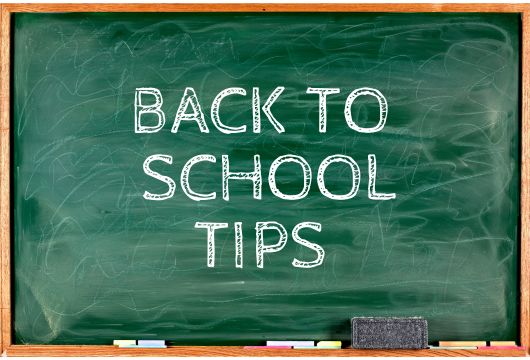
Jewish Family Service of MetroWest NJ (JFS) is here to help prepare kids and families for a positive start to the upcoming school year. Here are some do’s and don’ts for a smooth transition into your new routines and some helpful ideas.
DO start thinking about a back-to-school year routine
What will your new routine look like? Making some adjustments to your family’s schedule before the first day of school can help your child feel prepared and ready for a great start to the school year.
Returning to a school routine after a summer of more relaxed schedules can be very difficult. Creating a more ‘school-like’ plan for a week or a few days before the first day of school could help everyone adjust to this routine.
Some ideas to help with this transition: earlier bedtimes and adjusting to new wake-up times, adding in typical morning routines, including showering or washing up, eating breakfast, getting dressed, etc. This is also the time to start limiting screen time, social media & video games, especially in the evenings and before bedtime.
DO get your kids engaged in their return to school
Get creative in ways to engage your kids in returning to school!
Carve out time for back-to-school shopping and make it fun by bringing your kids along to pick out their own backpacks and supplies rather than ordering online. Ask your kids to make lists of food and snacks they like and start considering back-to-school lunch ideas. These types of activities will help your kids get excited for their return to the classroom.
DO attend the school open house, meet & greet, or create your own trial run
Find out if your school or administration hosts any open houses or meet & greets before school starts.
If there are no school events prior to the first day of school, create your own “dry run” by driving by the school, walking around the building and/or hallways (if allowed), reminding them of where they will enter and where recess takes place – anything you can do to help them get reacquainted with the school environment.
*Trial runs are especially helpful for kids transitioning to a new school.
DO start talking about friendships – lasting, meaningful ones and making new ones!
Throughout the summer your child’s friendships likely shifted due to new interests, camp, vacations, and less shared time at school. More often than not, your child may have become closer with some friends and more distant from others. Helping your child recognize the importance of being able to share friends, have friends overlap, and accept growing apart from a friend are important life skills. Unfortunately, these shifts can be challenging and painful to navigate for children. Therefore as parents being able to recognize that when your child verbalizes friendship stress, it rarely needs fixing. Children often just want parents to validate their feelings and say, “I know that what you’re going through is hard.”
When school starts, be mindful about asking “Did you make any friends?” This can feel shameful for kids who are struggling to figure out where they fit in. Instead try asking more general or neutral questions such as, “How was your day?” or “Tell me two things you liked about your day.”
DON’T forget about balance
It’s easy to get caught up in the eagerness to join school clubs, sign up for sports, and register for extracurriculars, but we need to remember that finding a balance is the key to success (for parents AND children).
Many children and parents feel overwhelmed by their daily activities and extracurricular commitments. As parents, it is crucial to role model and set realistic expectations for yourself and your children and recognize that balance is necessary for living less stressful lives.
DON’T minimize the ‘small’ things
As many learned this summer from Inside Out 2, anxiety and worry can creep up out of nowhere. Stressors that might feel small or insignificant to us as adults may feel like a big deal for our children. Children can worry about not having a close friend in class, not knowing where their locker will be, or being assigned the “wrong” teacher, and all of these can be real sources of anxiety for them.
Instead of minimizing or dismissing these worries, listen to and validate your child’s feelings, and provide opportunities to process what is bothering them. Utilizing open-ended, non-judgmental questions facilitates discussion and makes it easier for children to name and share their worries. Having a conversation about worries before the year begins will give you a chance to dispel any myths and develop a plan to manage stress and anxiety.
DON’T forget about self-care and taking time out for relaxation
This is a good reminder to spend time having fun and relaxing with your kids and family! While day trips to the beach or adventure park can be fun and thrilling, not all family time needs to break the bank or be planned out in advance.
Have fun in nature. Nature provides many lifelong benefits. Watch a movie. Watching movies or shows together with your family increases your relational bonds, reduces sibling rivalry, and builds self-esteem. Do a puzzle. Creating a puzzle together promotes social and team-building skills, while encouraging patience and camaraderie. Sit down for a meal. Research shows that when families regularly sit down together for a meal, children have higher academic performance, higher self-esteem, a greater sense of resilience, lower risk of substance abuse, a lower risk of depression, and develop healthier eating patterns in young adults. Connect with the outdoors. Connect with each other. Relax, have fun, and enjoy your time together.



